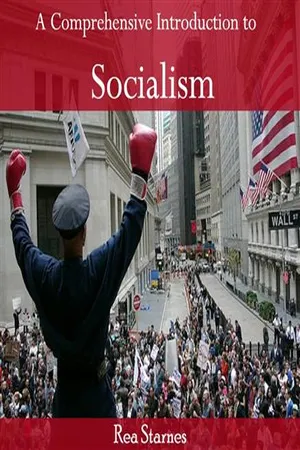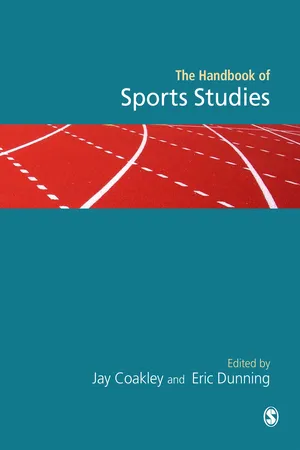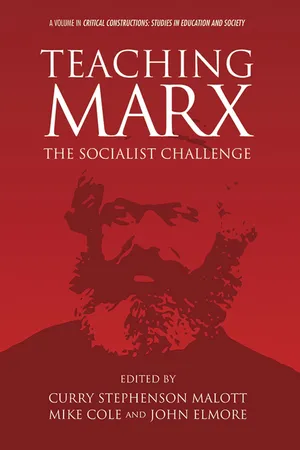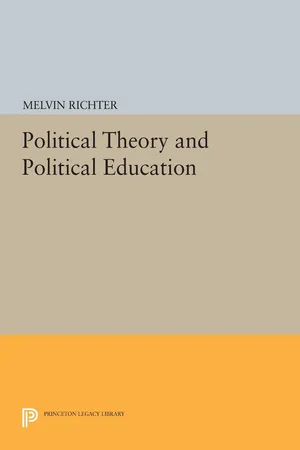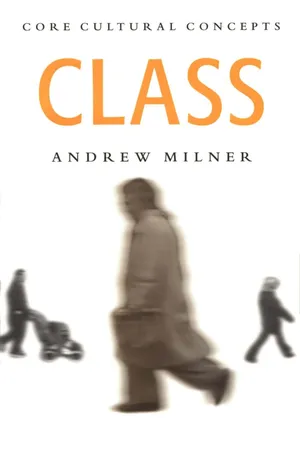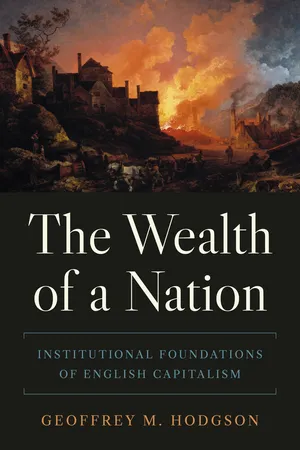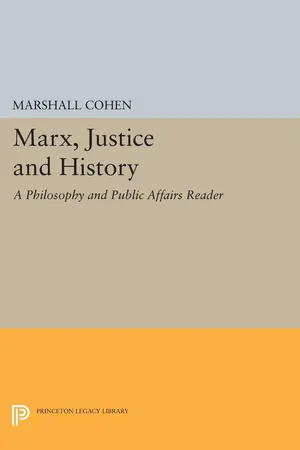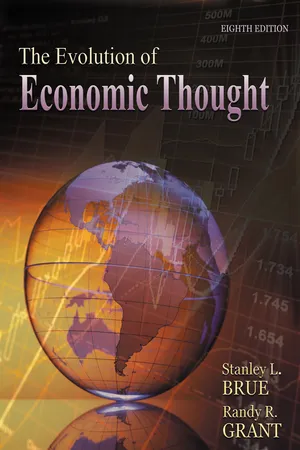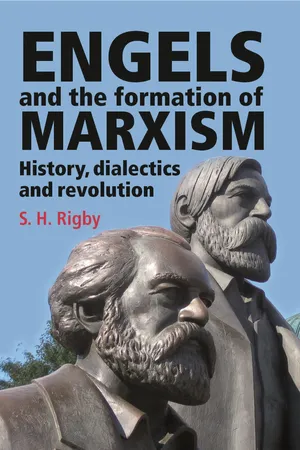Social Sciences
Marxism
Marxism is a social, political, and economic theory based on the ideas of Karl Marx and Friedrich Engels. It emphasizes the struggle between the working class and the ruling class, advocating for the eventual overthrow of capitalism and the establishment of a classless society. Marxism also focuses on the role of economic forces in shaping society and the need for collective ownership of the means of production.
Written by Perlego with AI-assistance
Related key terms
1 of 5
10 Key excerpts on "Marxism"
- No longer available |Learn more
- (Author)
- 2014(Publication Date)
- Library Press(Publisher)
___________________________ WORLD TECHNOLOGIES ___________________________ Chapter- 2 Marxism Marxism is an economic and socio-political worldview and method of socioeconomic inquiry that centers upon a materialist interpretation of history, a dialectical view of social change, and an analysis and critique of the development of capitalism. Marxism was pioneered in the early to mid 19th century by two German philosophers, Karl Marx and Friedrich Engels. Marxism encompasses Marxian economic theory, a sociological theory and a revolutionary view of social change that has influenced socialist political movements worldwide. The Marxian analysis begins with an analysis of material conditions, taking at its starting point the necessary economic activities required by human society to provide for its material needs. The form of economic organization, or mode of production, is understood to be the basis from which the majority of other social phenomena — including social relations, political and legal systems, morality and ideology — arise (or at the least by which they are greatly influenced). These social relations form the superstructure, of which the economic system forms the base. As the forces of production, most notably technology, improve, existing forms of social organization become inefficient and stifle further progress. These inefficiencies manifest themselves as social contradictions in society in the form of class struggle. Under the capitalist mode of production, this struggle materializes between the minority who own the means of production; the bourgeoisie, and the vast majority of the population who produce goods and services; the proletariat. Taking the idea that social change occurs because of the struggle between different classes within society who are under contradiction against each other, the Marxist analysis leads to the conclusion that capitalism oppresses the proletariat, the inevitable result being a proletarian revolution. - eBook - PDF
- Jay Coakley, Eric Dunning, Jay Coakley, Eric Dunning(Authors)
- 2000(Publication Date)
- SAGE Publications Ltd(Publisher)
Some of the academic controversies (for exam-ple, Seligman, Simmel, M. Weber) about Marxism show parallels with the debates about Marxism and political and social practice – as outlined before. The social-scientific elabora-tion of Marxist theory and research in the past has almost always been dogmatic and is even nowadays often very orthodox. This can only be explained adequately if we separate out the development of a Marxist theory which on the one hand became increasingly an ideologized general theory used by socialist/communist states and their educational institutions (schools, colleges, universities) – the so-called ‘scientific socialism’ grounded in ‘Marxism– Leninism’ and its variations (for example, Maoism) – while on the other hand, a number of critical and progressive scholars and schools of Marxist theory developed advanced theories and linked these with non-Marxist paradigms and methods, for example, ‘struc-turalist Marxism’, ‘critical theory’, ‘hegemony theory’, ‘critical philosophy’, feminist criti-cisms of Marxist theory, Marxist theories of ‘underdeveloped’ societies (cf. Bottomore, 1979: 125–43). In a nutshell, the academic development of Marxist theory has always been overshadowed by controversies about Marxism as an ideology. 4 This conflict between ideology and acad-emia emerged from a fundamental objective of Marxism, namely the utopian idea of a future communist society. All historical attempts to put socialism and communism into practice had to face the dilemma that Marx did not develop any practical models of communist society. In addition, the socio-economic condi-tions under which communist revolutions occurred never fulfilled the fundamental con-ditions Marx had identified. Some of the revo-lutionary movements did not have widespread support from the people, others took place before the predicted self-destructing crisis of industrial capitalism had set in. - eBook - PDF
Marx and Contemporary Scientific Thought
Symposium on the Role of Karl Marx in the Development of Contemporary Scientific Thought, Paris, 8, 9, 10 May 1968
- International Council for Philosophy and Humanistic Studies, Paris> Symposium on the Role of Karl Marx in the Development of Contemporary Scientific Thought Symposium on the Role of Karl Marx in the Development of Contemporary Scientific Thought <1968(Authors)
- 2022(Publication Date)
- De Gruyter Mouton(Publisher)
Marxism took shape as a theory of the movement towards liberation of the working class. It considered that this movement, to which it attached decisive importance, was economically determined by the development of capitalist social structures. Marx, like the materialists who preceded him, maintained that it was the people who make their own history. But unlike his predecessors, he raised the question : how is this possible ? Certainly the people do not create the environmental conditions of their lives; and the results of the activity of preceding generations exist, independently of each new generation since, as we know, the past does not depend on the present. This approach, which makes it possible to comprehend in a manner unknown to pre- Marxian materialism the essential dialectical problems concerning the socio-historic process, was improperly understood by those who inter- preted the materialistic appoach to history as "economic materialism". Those interpreters of Marx are, methodologically, not far from the so-called "geographical materialists", who thought that climate, flora and fauna, rivers and seas, mountains and valleys determine the character of social development. In his famous Theses on Feuerbach, Marx expressed his attitude towards the sociology propounded by earlier materialism, which, on the one hand, maintained that people themselves make history, but, on the other hand, pointed out the determining significance of environment, without understanding the dialectical correlation between human activity and its objective conditions : "The materialist doctrine that men are prod- ucts of circumstance and upbringing, and that, therefore, changed men are the products of changed circumstances and changed upbringing, forgets that it is men themselves who change circumstances, and that the educator himself needs educating. - eBook - PDF
- Curry Stephenson Malott, John M. Elmore, Mike Cole(Authors)
- 2015(Publication Date)
- Information Age Publishing(Publisher)
Teaching Marx, pages 3–26 Copyright © 2013 by Information Age Publishing All rights of reproduction in any form reserved. 3 CHAPTER 1 MARX, Marxism AND (TWENTY-FIRST CENTURY) SOCIALISM Mike Cole INTRODUCTION In this chapter, I begin by briefly introducing Karl Marx. I go on to address the unique strengths of Marxism, as both an analytical framework, and as a harbinger of a non-exploitative future world. In so doing, I look briefly at some historical challenges to it. I then outline two central tenets of scien- tific socialism (how Marx’s co-writer Friedrich Engels described Marxism). The first is Marx’s Labour Theory of Value which provides an explanation of the pivotal position of social class as the basis of surplus value and profit under capitalism. The second is the materialist concept of history which stresses how deeply the processes of production affect our lives. I then raise some common objections to Marxism and socialism, and respond to them, concluding with a brief discussion of the defining characteristics of twenty- first century socialism. This discussion is concretized in chapter 11, where I look at developments in the Bolivarian Republic of Venezuela. 4 M. COLE KARL MARX Karl Marx was born on May 5, 1818 in Trier, Germany. He spent his whole life as both a political activist supporting the struggles of working people worldwide, and as a prolific and most influential writer. His best known political tract, co-written with his collaborator and close friend, Frederick Engels, is The Communist Manifesto, first published in English in 1848. His most celebrated economic works are the three-volume series, Das Kapital, the first volume of which was published as Capital in England in 1887. In Capital Marx developed the theory of surplus value (see later in this chap- ter) which attempted to demonstrate that capitalism was objectively a sys- tem that exploited the working class. - eBook - PDF
- Melvin Richter(Author)
- 2014(Publication Date)
- Princeton University Press(Publisher)
M A R X I S M Although this analysis was never taken quite literally, the followers of Marx and Engels severely restricted the scope of philosophy. Lenin, for example, wrote only on epistemologi- cal and methodological issues. His writings on the theory of party, of the state, of the revolution were never considered philosophical. With Plekhanov, who coined the term "dialec- tical materialism," a demarcation line quite alien to the spirit of Marx's original thought developed: on the one hand, phi- losophy, reduced to the explanation of the materialist point of view and basic features of the dialectical method; on the other hand, historical materialism, as a substitute for general sociol- ogy, dealing in a quasi-empirical way with social structure and basic laws of social development. The reduction of philosophy to the value-free study of knowledge went side by side with an essentially pragmatic treatment of politics. Marx rather underestimated politics by reducing it to a part of the social superstructure. Political power was hardly regarded by him as an independent objec- tive determinant; it was rather a derivative of the relations of production. On the other hand, Marx considered politics a mere "sphere of alienation," the activity of forces estranged from human beings who created them. That is why he held that social revolution had not to be identified with political revolution, that the latter had "a narrow horizon" and led to the rule of an elite. That is why he was convinced that the state must be transcended by the "association of immediate producers," which would no longer be a purely political institution. The subsequent history of Marxism in either its Social- Democratic or its Bolshevik form, is not compatible with all these basic assumptions. A "mere superstructure," politics became the most essential sphere of Marxist practical activity. Far from being a mere consequence of economic changes, politics sometimes became their cause. - eBook - PDF
- Andrew Milner(Author)
- 1999(Publication Date)
- SAGE Publications Ltd(Publisher)
As it turned out, neither working-class spontaneity nor socialist political correctness was able to prevent the march to war. With the International went Lenin's illusions in Kautsky, Kautsky's in Germany, and also much of Marx's own intellectual and political legacy. The Marx-isms that arose thereafter owed far less to Marx than was com-monly admitted by their respective champions and detractors. At the risk of oversimplification, we can identify two major such traditions: Communist Marxism on the one hand; 'Western Marxism' on the other. Very schematically, we may characterize Communism in terms of its simultaneous defence of: firstly, the major theoretical tenets of pre-1914 Socialist orthodoxy (Marxism as a science, the base/superstructure model, history as progress); and secondly, the actually existing 'socialism' brought into being in Russia in 1917 by Lenin and the Bolsheviks. This was the kind of Marxism adhered to by the Communist parties, but also very often by 'left-wing' activists within the Social Democratic and Labour parties. 'Western Marxism', by contrast, came to combine a strongly 'idealist' version of high theory, the key concepts of which (consciousness, will, agency, hegemony, totality) were all essentially anti-materialist, with an increasingly critical political stance vis-à-vis the Soviet Union. The term was first coined by Merleau-Ponty to distinguish the kind of critical, humanist Marxism that developed in Western MARXIST THEORIES OF CLASS 31 Europe by way of reaction against 'eastern' Communist Marx-ism (Merleau-Ponty, 1974), its obvious exemplars including Gramsci, Lukâcs, Korsch, the Frankfurt School and Sartre, but not in this usage Althusser's 'structural Marxism'. - eBook - PDF
The Wealth of a Nation
Institutional Foundations of English Capitalism
- Geoffrey M. Hodgson(Author)
- 2023(Publication Date)
- Princeton University Press(Publisher)
Marx’s influence is present in how the problem is presented and what concepts are used. Marx’s thought is often 32 c h a p t e r 1 valuable when it was wrong, as well as when it is right. The gaps and mistakes require us to develop different ideas. Marx posed important questions, even when he gave flawed answers. Marxism is used here as a foil to introduce some contrasting ideas. For example, I side with Schumpeter against Marx as seeing modern finance as definitionally central to capitalism. Also against Marx, I argue that social class is not a foundational category—it rests upon more fundamental phenomena. Major socio-economic changes are better described as institutional trans- formations than in terms of the rise and fall of social classes. Marxism is a prominent example of endogenous ‘unfolding’ or ‘stages’ views of historical development. This emphasis on endogenous change downplays the importance of exogenous shocks in politico-economic transformations. Also against Marx, I propose that the state cannot be reduced to class interests. Finally, I stress the additional importance of legal powers and relations, which are not ‘superstruc- tural’ as Marx suggested. Despite all my criticisms, the fact that Marx’s work can be used in this way is a tribute to its importance and influence. Marx’s Historical Materialism Marx insisted that capitalism was a historically specific social formation. He shared this view with members of the German historical school. Together they differentiated between concepts that related to a particular mode of produc- tion and concepts that applied to all human existence.1 Marx distinguished the ‘natural’ or ‘material’ content of economic activity, on the one hand, from its (historically specific) social and relational forms, on the other. For example, he differentiated labour in general from the historically specific form of wage labour. The former is present in all human societies throughout history. - eBook - PDF
Marx, Justice and History
A Philosophy and Public Affairs Reader
- Marshall Cohen(Author)
- 2014(Publication Date)
- Princeton University Press(Publisher)
In The German Ideology, Marx stresses the contrast between de- scribing and prescribing. In the section of the first chapter entitled "History," he writes: Communism is not for us a state of affairs which ought to be estab- lished, an ideal in accordance with which reality should be trans- formed. For us communism is the real movement abolishing the present state of affairs, a movement whose necessary conditions exist as part of that same state of affairs. How justified are Marx's claims that he has developed a socialist the- ory which is empirical and descriptive, by contrast with the specula- tive and prescriptive theories developed by his predecessors and his contemporaries? I propose to test these claims by examining critically his two most celebrated expositions of historical materialism: the one presented in The Communist Manifesto and the one presented in the Preface to The Critique of Political Economy. I shall consider first a set of problems centering upon the role of class conflict in history, then a set of problems centering upon the relation of political to eco- Marx and Lenin as Historical Materialists nomic transformation. I shall argue that Marx's version of historical materialism is an unstable combination of two conflicting approaches to history—a dialectic of liberation and a sociology of change. I shall conclude that the conflict between Utopian and scientific—defined as Marx himself defines it—is an internal conflict of Marxian socialism. Concurrently indicating the position of Lenin on these issues, I shall attempt to relate internal conflicts of Marx's historical materialism to the split between communists and socialists after the Russian Revolu- tion. The distinctive doctrines of Leninism, I shall argue, derive from Marx's dialectic of liberation rather than his sociology of change. - eBook - PDF
- Stanley Brue, R. Grant, Stanley Brue, Randy Grant(Authors)
- 2012(Publication Date)
- Cengage Learning EMEA(Publisher)
Chapter 10 M ARXIAN S OCIALISM 201 Copyright 2012 Cengage Learning. All Rights Reserved. May not be copied, scanned, or duplicated, in whole or in part. Due to electronic rights, some third party content may be suppressed from the eBook and/or eChapter(s). Editorial review has deemed that any suppressed content does not materially affect the overall learning experience. Cengage Learning reserves the right to remove additional content at any time if subsequent rights restrictions require it. Questions for Study and Discussion 1. Briefly identify and state the significance of each of the following to the history of economic thought: Engels, Manifesto of the Communist Party (1848), Das Kapital (1867), Darwin, Hegel, Feuerbach, materialism, forces of production, relations of production, constant capital, variable capital, socially necessary labor time, labor power, surplus value, rate of exploitation, transformation problem, organic composition of capital, industrial reserve army, and proletariat. 2. Explain Marx ’ s theory of history, relating it to the earlier ideas of Hegel and Feuerbach. 10-1 PAST AS PROLOGUE (continued) Accompanying perestroika was a campaign for glasnost, a greater openness of discussion and debate on economic and political matters. Although Gorbachev ’ s perestroika was largely unsuccessful, glasnost delivered a stream of criticism of the existing political and economic system and engendered ever-bolder reform propo-sals. In eastern Europe and the Soviet Union, glasnost clearly revealed that the vast majority of people opposed the communist system of government and economics. This became apparent to the world in 1989, when the East Germans tore down the Berlin Wall, a wall their leaders had built decades earlier to keep East Germans from fleeing to the West. The destruction of the wall and the celebration that fol-lowed ended any remaining facade that the ideals of Marxism were shared by the people living under its regime. - eBook - PDF
- S. H. Rigby(Author)
- 2024(Publication Date)
- Manchester University Press(Publisher)
Such readers will doubtless see an alternative to scientific socialism [ 224] Scientific and critical Marxism: an assessment in the 'critical Marxism' tradition which has dominated western Marxism in the twentieth century. Yet, in fact, far from critical Marxism offering an alternative to scientific socialism, it stands or falls with it. Why should this be the case: As we have seen, any claim to offer a critique of social and political institutions must provide itself with some ground from which such a critique can be mounted if it is to elevate itself above mere opinion. But what grounds of critique are open to the Marxist tradition: The classic answer to this question is that provided by Lukacs in History and Class Consciousness (1923), which makes explicit the argument already implicit in The German Ideology, that capitalism can be criticised from the class standpoint of the proletariat because it does not meet the needs and interests of the working class. We can thus criticise capitalism in the name of a future where the proletariat's needs are met: 'the proletariat cannot liberate itself as a class without simultaneously abolishing class society as such.' However, for Lukacs, the class standpoint of the proletariat could not be identified with the the consciousness which any particular workers had at any particular time since the proletariat is not, at all times and in all places, aware of its own class.,interest (Lukacs: 51, 70) More recently, Lukacs' position has been restated by Callinicos who claims that 'classical Marxism is the theoretically clarified experience of the interna., tional working class movement.' Yet Callinicos himself admits that 'experi., ence is never self.,interpreting. Workers will interpret their experience of struggle in the light of their existing beliefs' ( Callinicos, 19876: 224, 227). The problem, however, is how we are to decide between conflicting interpretations of working.,class experience.
Index pages curate the most relevant extracts from our library of academic textbooks. They’ve been created using an in-house natural language model (NLM), each adding context and meaning to key research topics.
